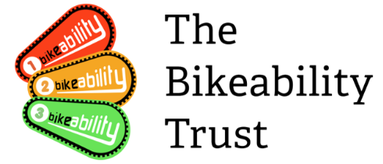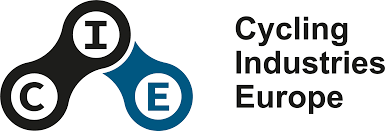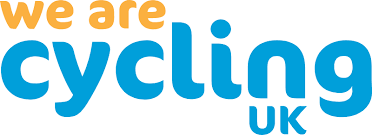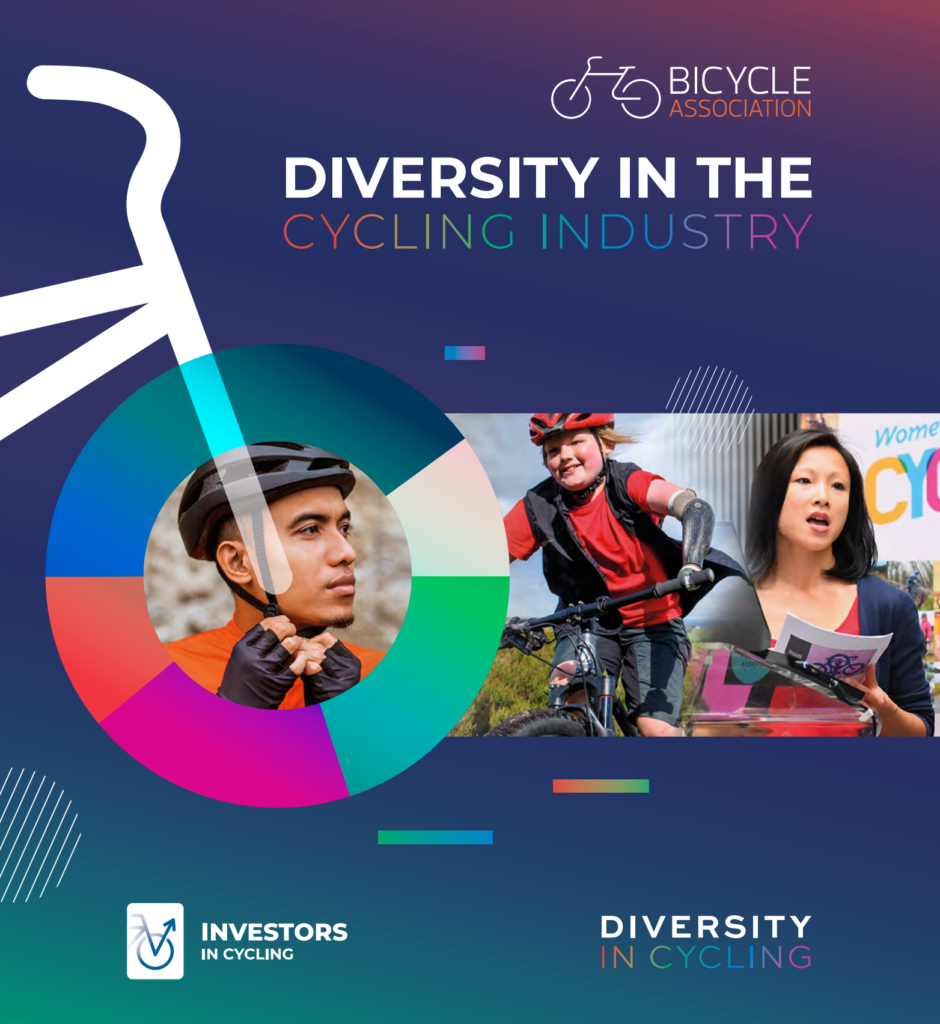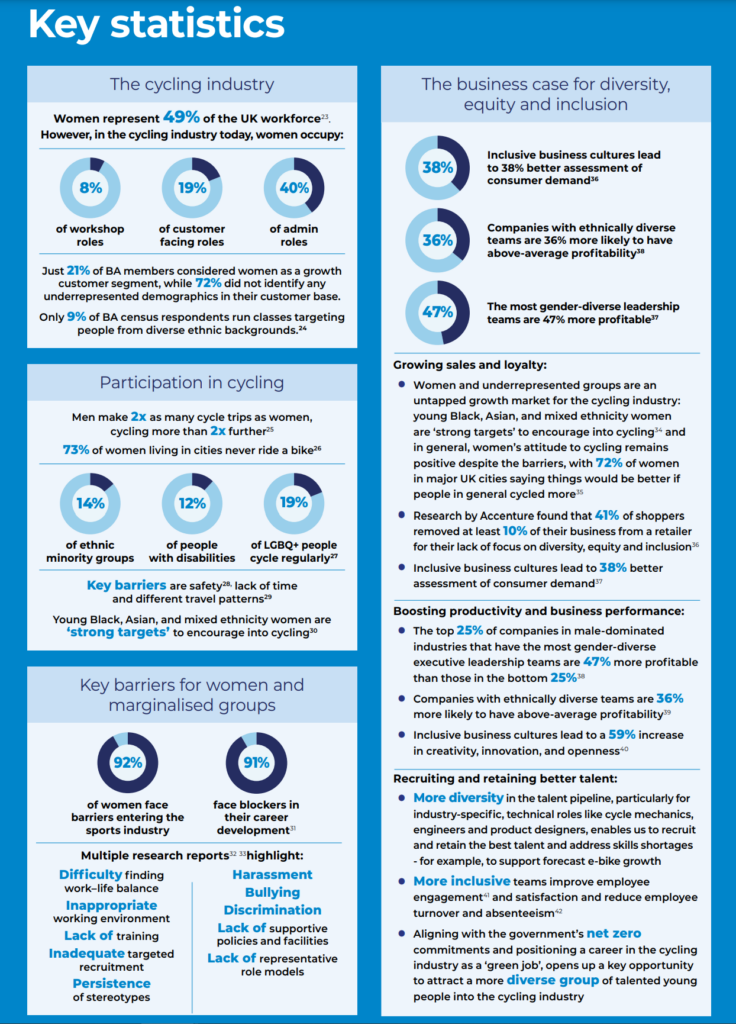Diversity in the Cycling Industry
A project to align the cycling industry behind a shared commitment to creating a diverse, equitable, inclusive industry, unlocking more value for us all.
WATCH THE REEL
About this project
This Bicycle Association project aims to unite and align the cycling industry behind a shared commitment to creating a diverse, equitable, inclusive industry. As the trade association for cycle retailers, suppliers, manufacturers and service providers, the BA is uniquely placed to support the industry in tackling these systemic issues strategically and holistically. Global research shows that fixing our diversity problem is good – essential, even – for sustainable industry growth, unlocking more value by:
- Growing sales, reaching out to new, diverse customer audiences
- Improving profitability, through increased innovation and better decision making
- Recruiting and retaining better talent
Initially, the project will focus on collecting data and insights from both employers and underrepresented groups in our industry, in order to benchmark, measure progress and capture case studies and role models.
The project then aims to provide targeted support to employers, sharing best practice from within and outside cycling to help them implement their strategic commitments to diversity, equity and inclusion, and unlock more value for their business. Alongside, we will build a supportive professional network for women and other marginalised groups, to advance careers and enable more diverse voices to be heard by policymakers and at industry events. Our independent Advisory Board will track our progress towards these objectives, offering relevant perspectives and schools of thought in response to the challenges and barriers.
With collective purpose and ambition, we can build the momentum to achieve real, long-lasting change, advancing careers, enabling diverse voices to be heard, and inspiring more diverse people to enter and lead the sustainable, resilient, competitive cycling industry of the future.
Read our full report into Diversity in the Cycling Industry.
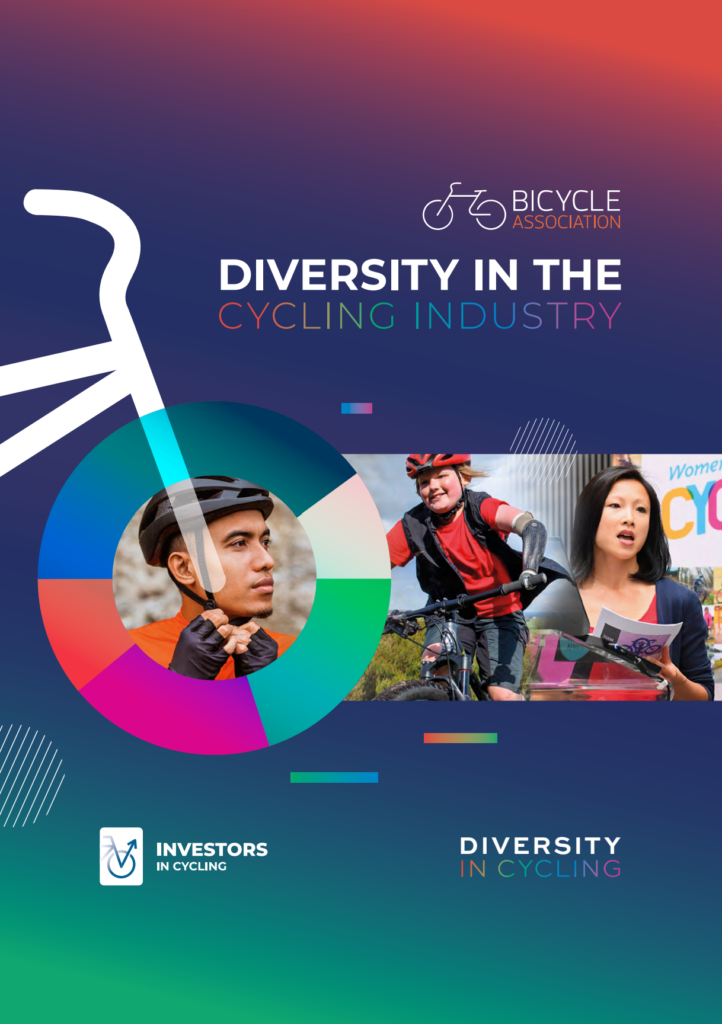
Sign our Diversity Pledge
“We are committed to creating a diverse, equitable and inclusive workplace culture, with balanced representation at all levels. We will create an environment where everyone feels respected, supported and empowered to build a sustainable, resilient, competitive cycling industry, unlocking more value for us all.”
We invite all BA members and Investors in Cycling to sign our pledge and join us in our commitment to improve diversity, equity and inclusion across the industry. Whether this is your first step on the journey to becoming a more inclusive employer; or whether you have long-standing strategic commitments to diversity, equity and inclusion, we encourage every organisation to sign up. There is no cost to add your company to the growing list of signatories, and you will receive the Diversity Pledge logo to use in your own marketing and recruitment.
Together, we will make a difference.
Pledge Signatories






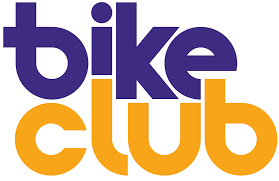

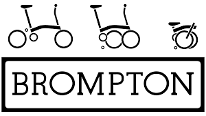



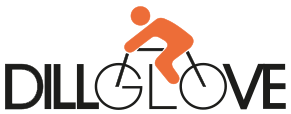


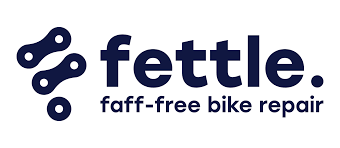





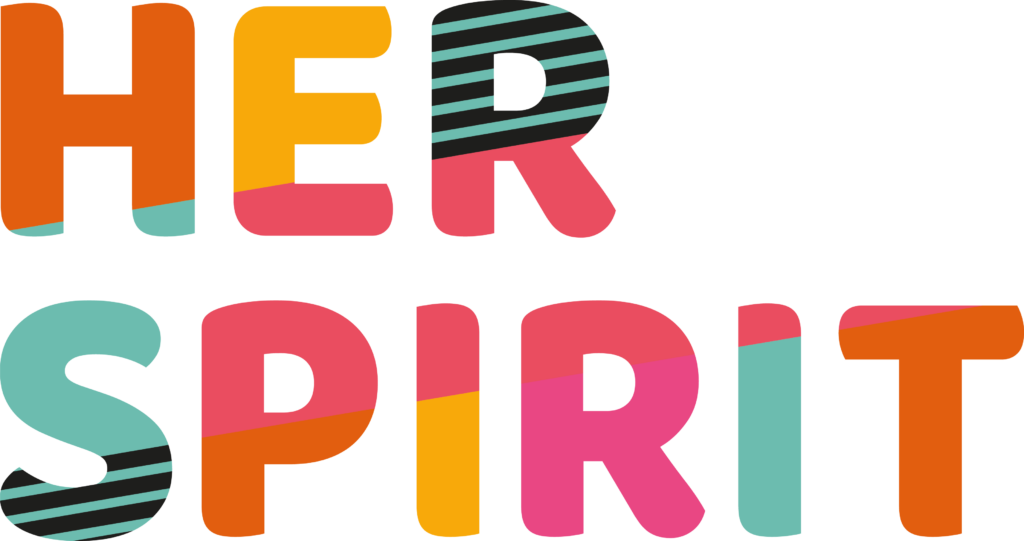


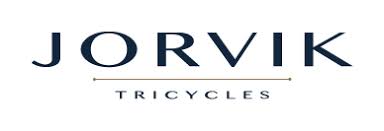


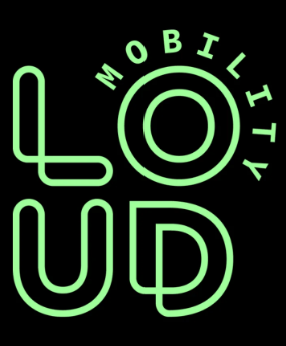





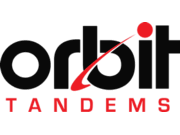












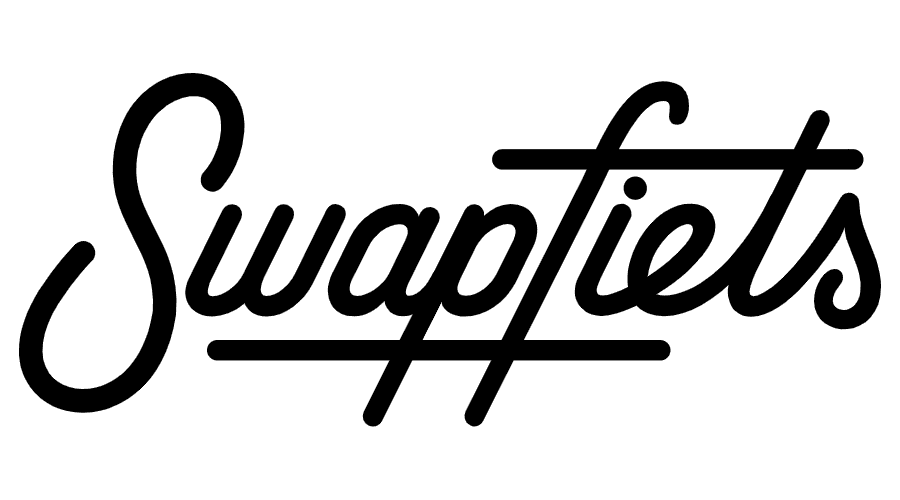






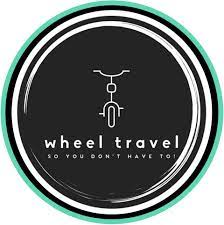





THE BUSINESS CASE FOR DIVERSITY: UnlockING more value ACROSS SALES, PRODUCTIVITY AND RECRUITMENT
Achieving balanced representation in the workforce is important not just out of a moral imperative to better reflect the society in which we all live and allow everyone to be their whole and most authentic selves at work, but also because not to do so will hold back our future growth, sustainability and competitiveness. The commercial imperative for improving diversity, equity and inclusion is clear – a more balanced, representative workforce unlocks additional value in three key ways:
Growing sales, customer satisfaction and loyalty:
- Women and underrepresented groups are an untapped growth market for the cycling industry: young Black, Asian, and mixed ethnicity women are ‘strong targets’ to encourage into cycling11 and in general, women’s attitude to cycling remains positive despite the barriers, with 72% of women in major UK cities saying things would be better if people in general cycled more12
- Research by Accenture found that 41% of shoppers removed at least 10% of their business from a retailer for their lack of focus on diversity, equity and inclusion13
- Inclusive business cultures lead to 38% better assessment of consumer demand14
Boosting productivity and business performance:
- The top 25% of companies in male-dominated industries that have the most gender-diverse executive leadership teams are 47% more profitable than those in the bottom 25%15
- Companies with ethnically diverse teams are 36% more likely to have above-average profitability16
- Inclusive business cultures lead to a 59% increase in creativity, innovation, and openness17
Recruiting and retaining better talent:
- More diversity in the talent pipeline, particularly for industry-specific, technical roles like cycle mechanics, engineers and product designers, enables us to recruit and retain the best talent and address skills shortages – for example, to support forecast e-bike growth
- More inclusive teams improve employee engagement18 and satisfaction and reduce employee turnover and absenteeism19
- Aligning with the government’s net zero commitments and positioning a career in the cycling industry as a ‘green job’, opens up a key opportunity to attract a more diverse group of talented young people into the cycling industry
Adopt our 10-step action plan to improve diversity, equity and inclusion in your workplace, or get more key stats in our Diversity in the Cycling Industry report.
We have inclusive hiring processes
“We completely changed our recruitment practices, including where we promote vacancies, the wording of job ads, selection criteria and the interview process, to make them more inclusive. Over 4 years, this worked particularly well with female representation; going from 3% to 48% of employees identifying as women.”

DIVERSITY DATA, INSIGHT AND REPORTS
Today, the cycling industry has a diversity problem. Although women make up 49% of the UK workforce1, in the UK cycling industry, just 8% of workshop-based roles, and 19% of customer-facing roles, are occupied by women2. Women hold 40% of the industry’s administrative roles3, but only a small handful have progressed to senior leadership positions. Though no direct data for the cycling industry exists, we also know that there are not enough Black, Asian and ethnic minority people; too few individuals with disabilities or from low socio-economic backgrounds; and a lack of LGBTQ+ people joining or leading our industry today.
Research points to multiple causative factors, including difficulty finding a work–life balance; lack of appropriate working environment; lack of training and life-long learning opportunities or inadequate targeted recruitment; persistence of stereotypes; harassment; and bullying3. Other studies highlight gender discrimination, lack of supportive policies and facilities and female role models as key barriers for women4. The World Economic Forum’s Global Gender Gap report estimates it will take 132 years to achieve gender parity, with the global COVID-19 pandemic slowing the rate of progress5.
The lack of diversity in the cycling industry is part of a wider systemic issue, and is mirrored by a similar imbalance in participation in cycling across most parts of the UK today, whether for sport, leisure or active travel. Only 11% of women cycle regularly, compared with 23% of men6, who make twice as many trips and cycle more than two times further than women7. Just 14% of ethnic minority groups, 12% of people with disabilities and 19% of LGBTQ+ people cycle regularly8. This underrepresentation in participation inevitably impacts upon the desirability of a career in the cycling industry for these same groups today.
In addition, low levels of awareness within the industry perpetuate the status quo: just 21% of the industry considered women as a growth customer segment in the BA’s 2021 census, while 72% did not identify any underrepresented demographics in their customer base9. Only 9% of census respondents ran classes targeting people from diverse ethnic backgrounds10. To overcome this systemic inequity, it is vital that the many organisations and community groups working to achieve diversity, equity and inclusion across the cycling ecosystem align and support each other to achieve our common goal.
INTERNATIONAL perception survey Report – Aug 2023

As an industry, we need to do more to create a welcoming, equitable workplace for all.
To better understand the perceptions, experiences and needs of those working in the cycling industry around diversity, equity and inclusion (DEI), the BA recently carried out an international perception survey, in partnership with Cycle Industries Europe and WORK180, a leading advocate for DEI that helps organisations raise their workplace standards. We are proud to share that 1,123 people currently working in the cycling industry took the time to complete the survey, providing us with invaluable insights and perspectives on diversity, equity and inclusion in the workplace.
The results of this survey, now published in an in-depth perception survey report, indicate that our experience correlates strongly with how we identify, and whether we are part of the overrepresented majority – white, heterosexual and male – or the marginalised minority.
Most report respondents felt positive overall about the industry, with the most common industry “keywords” volunteered by survey respondents being: ‘fun’, ‘good’, ‘great’ and ‘exciting’, alongside ‘challenging’ and ‘frustrating’.
However, the report reveals findings that will be deeply concerning for the industry, including:
- A lack of diversity in senior leadership, with the overwhelming majority of senior roles filled by white, heterosexual men;
- Significant experience of unfair treatment, including harassment, reported by minority groups;
- Nearly half of those with disabilities keep these hidden from their employer;
- Women and minorities are more likely to leave the industry;
- Women want concrete action on leadership and pay
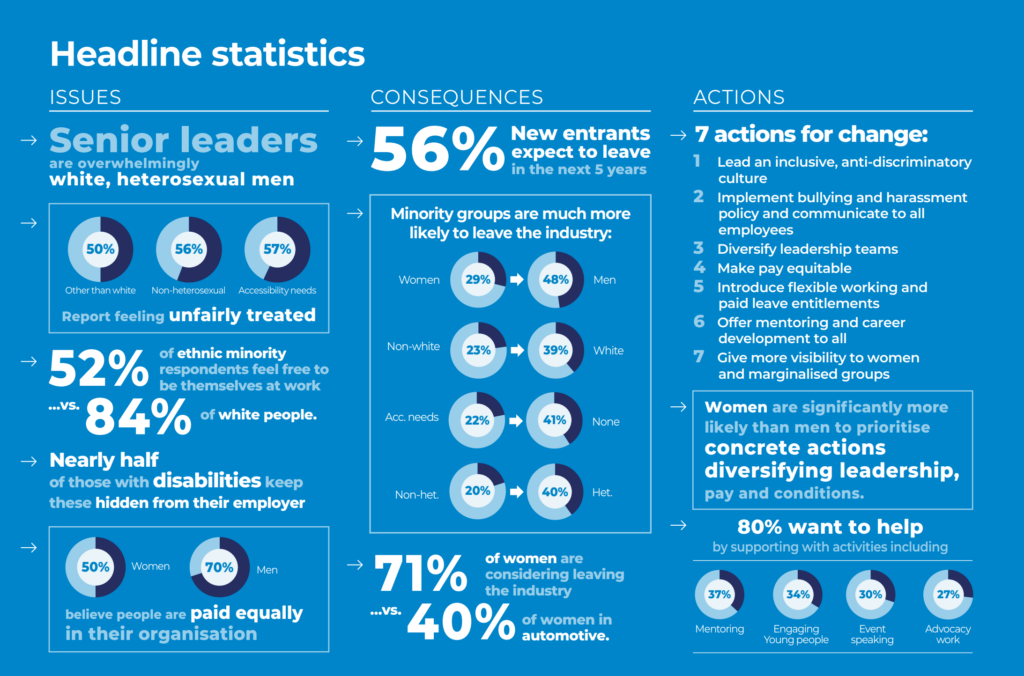
Take action today
The report calls on industry leaders to make a strategic commitment to diversity, equity and inclusion in their own organisation, by signing the BA’s Diversity Pledge and by prioritising 7 actions for change:
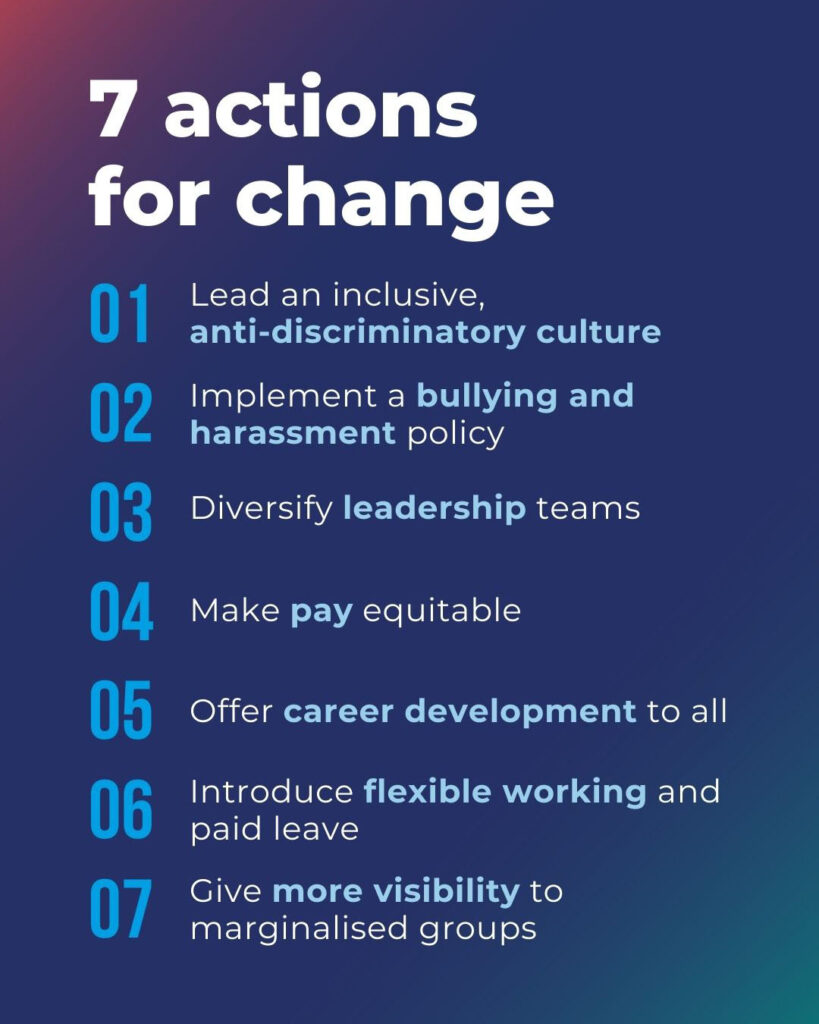
- Lead an inclusive, anti-discriminatory culture
- Implement bullying and harassment policy and communicate to all employees
- Diversify leadership teams
- Make pay equitable
- Introduce flexible working and paid leave entitlements
- Offer mentoring and career development to all
- Give more visibility to women and marginalised groups
We encourage you to download and read the perception survey report and share it widely with your cycling colleagues, communities, and social networks (please share our social reel on LinkedIn, Twitter and Instagram). Together, we can amplify the message and drive meaningful change.
Most importantly, we invite you to reflect on the report’s findings as they relate to your organisation, and prioritise the 7 actions for change, as appropriate.
Diversity in the Cycling Industry Report – Mar 2023
Foreword by Steve Garidis, Executive Director, Bicycle Association
There’s no doubt that cycling is beginning to be recognised by government as a crucial mode of transport, strategically important to deliver UK climate and public health goals and a valuable tool for creating better places to live, work and play. This brings with it welcome policy priority and increasing levels of public investment, to make cycling easier and safer, in turn attracting a wider audience for the kind of everyday cycling that might be undertaken by everybody, for leisure, exercise, health, social, travel to shops, work or school.
We can assume that as these policies and investments are delivered, cycling will grow. The potential is very significant.
But to achieve this growth, cycling must also break out from its predominantly male, white and often ‘cycling enthusiast’ niche. This group has arguably reached its natural limit. Certainly, UK bike sales over the last few decades have stayed at roughly the same size. Cycling has a diversity problem and to exploit the significant potential that now exists for growth, it must become much more diverse than it is today.
Here, the cycling industry has a role to play. Just as cycling has a lack of diversity, so too does the cycling industry. There are many reasons but the biggest may well be that it’s an industry full of cycling enthusiasts. Often a strength, but which here also means that an industry workforce of over 60,000 has roughly the same diversity as its enthusiast consumer base. Our workforce is the ‘frontline’ of cycling, the consumer face. We sell cycling to would-be cyclists on a daily basis.
As an industry, one of the most important things we can do therefore is to take action so we better reflect our target market. Success will not only mean more people enjoying the fun and benefits of cycling, but will also mean growth in cycling sales, expansion and creation of cycling businesses,
and more people in cycling jobs.
As the national body representing the UK cycling industry, the Bicycle Association has a useful role to play in helping the industry collaborate and coordinate on big issues like diversity. There’s a lot to do, but working together, the prize is great.
Steve Garidis
Executive Director, Bicycle Association
Equity Audit AND INDEX – JUL/AUG 2023
Our core belief is that by helping employers to know better, they will be able to do better. – WORK180
To support and champion employers, the BA is collaborating with Women in Transport and WORK180 to launch a groundbreaking annual, cross-sectoral Employers’ Equity Audit and Index. Via a secure, independently-validated online audit, BA members and Investors in Cycling will confidentially benchmark against their industry peers on key DEI standards. On completion, employers can access key resources from the WORK180’s knowledge base portal, to support them in implementing their own DEI action plan. Example resources include an inclusive guide to hiring; a gender-neutral parental leave policy template; and a ten-step list of recommended policies and guides for small businesses.
From year two, it is envisaged that an annual awards ceremony will celebrate and champion the top-five employers and inspire more members to follow suit.
We embrace flexible working
“We offer flexible working arrangements to all our staff, helping every employee overcome workplace barriers and thrive, by normalising flexibility.”
Resources, guides and templates
10-step DEI action plan
Aligned with WORK180’s global workplace equity and inclusion standards, this diversity, equity and inclusion (DEI) action plan is designed to be used by all organisation types and sizes, including as a cross-referencing tool for those with pre-existing DEI strategies.
#1 We have inclusive hiring processes
We commit to fair and transparent hiring processes that empower people of all backgrounds and experiences to apply and know they will be genuinely considered.
#2 We champion representative leadership*
We recognise that achieving balanced, representative leadership is vital to achieving diversity in our organisation and across the industry.
#3 We embrace flexible working*
We help every employee overcome workplace barriers and thrive, by normalising flexibility.
#4 We are transparent and equitable about pay*
We work towards true pay equity, promoting transparency and benchmarking to track, measure and prove progress.
#5 We promote shared caring
We promote shared responsibility of unpaid care, regardless of gender, to enable everybody to thrive in the workplace.
#6 We listen and are data led
We measure our progress and create a listening culture that empowers all employees to share their experiences, learning from them to make lasting change.
#7 We support career development for all*
We nurture and retain our employees through career development support that builds confidence, skills, networks and direction.
#8 We commit to an inclusive culture for everyone*
We champion inclusive and anti-discriminatory cultures among employees and customers, in which a wide range of people can come together and thrive, recognising that inclusive organisations are better for all.
#9 We offer safety and support services to all employees*
We recognise the important role employers play in the removal of systemic barriers faced by women and marginalised groups (e.g., harassment, domestic violence) and offer robust support for those impacted.
#10 We make strategic commitments to diversity, equity and inclusion*
We lead from the top, making a formalised commitment to building and maintaining a diverse, equitable, inclusive organisation.
Download an editable 10-step DEI action plan.
*These actions were identified as high priority for the industry to address, based on the responses of 1,123 people in our International Perception Survey.
DOWNLOADABLE DEI GUIDES AND TEMPLATES
- 10-step DEI action plan, from the Bicycle Association – editable MS Word document
- BA Guide to Inclusive Recruitment, from the Bicycle Association – includes a template job advertisement
- UK Cargo Bike Rider and Operator Codes of Conduct, from the Bicycle Association
- BSI Code of practice (PAS 1948): Diversity, equity and inclusion in the workplace, from the British Standards Institution – a practical, one-stop shop for any organisation looking to develop and implement an effective diversity, equity and inclusion (DEI) framework
- The Business Case for DEI Toolkit, from WORK180 – includes a downloadable template DEI policy
- Facts about Diversity in the Workplace, from WORK180
- The Ultimate Guide to Workplace Diversity, from WORK180
- The Ultimate Guide to Workplace Inclusion, from WORK180
- The Ultimate Guide to Workplace Gender Equality, from WORK180
- Equity, Diversity and Inclusion Basics, from the Chartered Institute of Public Relations
- Inclusive Language (focused on disability), from the Chartered Institute of Public Relations
- Inclusive Communications, from the Chartered Institute of Public Relations
- Inclusive Events, from the Chartered Institute of Public Relations
- Advocacy and Allyship, from the Chartered Institute of Public Relations
- Six signature traits of inclusive leadership, from Deloitte
- Example of an Employee Handbook, from the Scottish Parliament – includes policies on bullying and harassment, being a parent or carer, period and menopause support and more
Reports and further reading
This is not intended to be an exhaustive list, but rather a place to start. Many of the publications cited below have their own reading lists to explore.
Cycle industry diversity reports
- Bicycle Association (2023) International Perception Survey Report – 41-page report examining the perceptions, experiences and aspirations of people currently working in the cycle industry and identifying 7 priority actions to help everyone thrive in the workplace
- Bicycle Association (2023) Diversity in the Cycling Industry Report – 27-page report, in three parts: where are we now; where do we want to be; how do we get there
- University of Westminster (2023) Delivering Good Work: Labour, employment and wellbeing in London’s cargo bike sector
- University of Bristol (2023) Gender injustice in action sports: The role, potential and limitations of transformative marketing and media for women’s mountain biking
Diversity, equity and inclusion in the cycle industry – articles, videos, blogs, podcasts and more
- Cycling Industry News (2023) Four cycling female founders to watch out for in 2024, by CycleChic founder Caz Conneller
- Zag Daily (2023) The culture of discrimination and exclusion in Britain’s cycling industry – an interview with BA Diversity Advisory Board member, Georgia Yexley
- Bicycle Association (2023) Quick wins to improve diversity and inclusion in your business
- ITS International (2023) Georgia Yexley: Here’s how micromobility can deliver public good
- Cargobike Culture (2023) Why is the cargobike industry dominated by men?
- Cargobike Festival (2022) We need to talk about diversity in the cargo bike industry
- Mor Diversity (2021) After the Storm, exploring diversity champion Aneela McKenna’s workplace racial trauma and the power of the bicycle in overcoming impacts of racial discrimination
- Spindrift, a podcast by cycling journalist Aoife Glass about “bikes, life, adventure & more”, featuring guests from the world of cycling, including pro-riders, industry insiders, community advocates and everyday adventurers
- My Cycle, My Mobility Aid, a Spotify podcast by Wheels for Wellbeing. Each episode features a disabled cyclist, talking about their experiences and thoughts on how to improve cycling for us all
- She’s Electric Role Models, part of a campaign launched by Cycle Chic, to help more women overcome barriers to cycling, through e-bikes
- Wheel Suckers podcast – London Bike Kitchen’s Alex and Jenni navigate the “wild and wonderful world of wheels”, often exploring the intersecting themes of diversity, equity and inclusion in cycling
- Women in the workshop: In conversation with Bee Pedal Ready – an inspiring story about a Manchester bike mechanic whose passion for teaching others is driving change
- Black Unity Bike Ride 2022 film – an insight into “what it was like for over 1,000 of us to ride through the streets of London in the name of unity, empowerment and love.”
- Gender on the agenda, a series of webinars exploring the broader theme of how and why transport is not gender-neutral
Key reports on diversity, equity and inclusion in the workplace
- McKinsey & Company (2020) Diversity wins: How Inclusion matters
- World Economic Forum and McKinsey & Company (2023) Global Parity Alliance: Diversity, Equity and Inclusion Lighthouses 2023
- PwC (2022) Diversity, Equity & Inclusion Benchmarking Survey – European Data Sheet
- MBS Intelligence (2022) Tracking progress on diversity and inclusion in UK retail
- World Economic Forum (2022) Global Gender Gap Report 2022
- Babu, A (2022) One in a Million – A Female Founders Forum Project
- Business in the Community (2021) The Times Top 50 Employers for Women
- WORK180 (2023) What Women Want 2023
- PwC (2023) Bouncing Back – PwC’s Global Sports Survey
- Sporting Insights (2023) Tackling inequality: The voice of women working in sport
On diversity in cycling, sport and the outdoors
- Cycle Sisters (2023) Cycling for Diverse Communities – guides for local groups and clubs, and for local authorities
- UCI Cycling World Championships, Glasgow (2023) Equality, Diversity and Inclusion Framework
- British Cycling (2023) Limitless – an inclusive club programme, providing cycling opportunities for disabled people
- British Cycling (2021) Our Ride – An Equality, Diversity and Inclusion Strategy for British Cycling
- Edwards, A. (2022) Diversity in Cycling: 2nd Edition, by Andy Edwards
- People for Bikes (2021) Where Do We Go From Here? Breaking Down Barriers to Bicycling in the U.S.
- Sustrans (2018) Reducing the gender gap
- Transport for London (2021) Cycling potential in London’s diverse communities
- University of Bristol (2023) Gender injustice in action sports: The role, potential and limitations of transformative marketing and media for women’s mountain biking
- Wheels for Wellbeing (2019) A Guide to Inclusive Cycling: 2nd Edition
- TCO London (2022) Beyond Representation: The Future of Diversity and Inclusion in the Outdoors
- Black Unity Bike Ride (2022) – full film
- Back in the Frame: How to get back on your bike, whatever life throws at you, by Jools Walker
- The Unstoppable Rise of Women’s Sport, by Sue Anstiss
- Cyclingnews (2023) Charlotte Broughton: Sexualisation, misogyny and social media – How online platforms are failing female cyclists
Exploring race, equality and intersectionality
- Fix the System, not the Women, by Laura Bates
- Positively Purple: Build an Inclusive World Where People with Disabilities Can Flourish, by Kate Nash
- Black and British: A Forgotten History, by David Olusoga
- Why I am No Longer Talking to White People About Race, by Reni Eddo Lodge
- Pride: The Story of the LGBTQ Equality Movement, by Matthew Todd
Networking, mentoring and mutual support
A selection of recommended professional networks for women:
- Women in Cycling, a global initiative led by Cycle Industries Europe to help women get more visibility, impact and leading seats in the cycling industry. Membership is free, via a LinkedIn group and expertise portal, and there are regular ‘Meet the Experts’ webinars
- Women in Transport, which offers regular webinars (some open to non members), regional networking events, a podcast and annual women’s leadership and mentoring programmes. Annual membership is £60
- Fearless Women’s Sport Collective, an inclusive community for all women working in sport, with over 5,000 women from 85 countries. It’s free to join and runs regular networking Zoom calls, webinars, a monthly newsletter and private LinkedIn group
Mentoring and leadership programmes:
- Women in Transport delivers highly-rated annual women’s leadership and mentoring programmes
- The Uplift women’s mentoring programme, created by Rachael Burnside at SHIFT Active Media, matches experienced female leaders in the cycling industry with the next generation of talent, to give aspiring industry women access to a network of senior female professionals
Diversity Advisory Board
Operating as an independent external body of the Bicycle Association’s governance structure, the Diversity Advisory Board’s main objective is to track progress with implementing the project’s diversity, equity and inclusion (DEI) action plan, offering relevant perspectives and schools of thought in response to the challenges and barriers for implementation. The Board will also engage in advocacy work and is invited to make recommendations to the Bicycle Association’s governance group on diversity, equity and inclusion in the context of its wider strategy.

Nikki Hawyes, Chair
Managing Director, Cannondale UK
Since 2021, Nikki has been Managing Director for Cannondale in the UK. Previously, she was a board member at Zyrofisher, a leading bicycle parts and accessories distributor, managing the brand portfolio. Nikki established her career in the tech industry, with a commercial focus on Government and Defence sectors. Her passion for the outdoors led her to the French Alps, where she discovered the joys of mountain biking. Seeking to combine Her passion with her commercial background, she established a specialist mountain bike shop. On returning to the UK, the natural evolution was to continue to combine her love of bikes with her career, leading her to where she is now. In Nikki’s words: “Throughout my career, I’ve often been in industries and teams where I am in a minority group. At times I have been disadvantaged because I am female. This is what drives me to support DEI initiatives so I can give my time and experience helping other minority groups have a voice and be heard.”
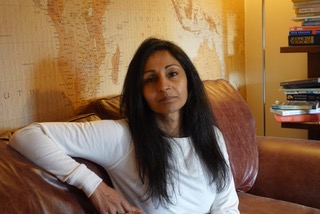
Aneela McKenna
Founder, Mòr Diversity & Chair, British Cycling Diversity and Inclusion Advisory Group
Mountain bike coach, guide, mentor and entrepreneur, Aneela is an award-winning equality, diversity and inclusion change-maker. She is founder of the Mòr Diversity Equality, Diversity and Inclusion (EDI) Consultancy, Diversity and Inclusion (D&I) Lead for the UCI 2023 Cycling World Champs, chair of British Cycling D&I Advisory Group, Board member of Scottish Cycling’s Participation and Development Committee and partner of Go-Where Scotland MTB adventure outfitters. Aneela has an infectious passion and a quiet determination to amplify marginalised voices and assist others to understand and embrace EDI, to enrich industry and organisational culture whilst increasing representation in sport and the outdoors. In Aneela’s words: “Diversity and inclusion should be everyone’s priority. If we want to bring about sustained and meaningful change, the industry needs to build inclusion at all levels of cycling – in its workforce, decision making structures and business practices. A fundamental part of this is to continue to engage and empower groups and individuals in the right way to build our future leaders and help us truly reflect the society at large. I would encourage everyone who works in the industry to sign the diversity pledge and to work together through collaboration and partnerships, learning from each other to help our industry grow and be the best it can be.’’

Collette Clensy
Marketing Manager. Giant Group
Collette has been an inspirational force behind the Giant Group’s marketing strategy for over 25 years and has been fortunate to see the representation of women’s cycling transform in her time working for the Giant Group. In Collette’s words, “The introduction of Liv Cycling and the remarkable ambassadors is an inspiration and reminder of the importance of our community and why we ride. We will continue to tell our stories, share our rider’s experiences, offer tips and create products that empower women worldwide to ride, smile and inspire one another.”
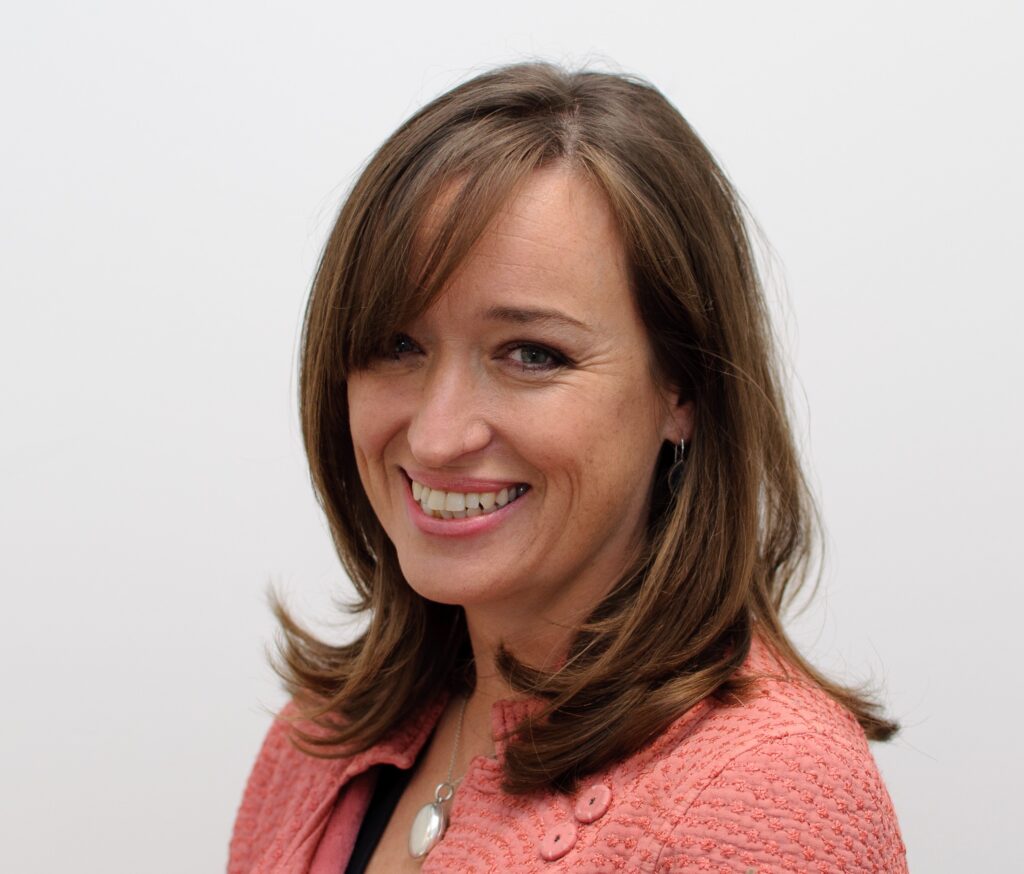
Emily Cherry
Chief Executive, The Bikeability Trust
Emily Cherry is the Chief Executive of the Bikeability Trust, whose mission is to get more people cycling, more safely and more often, through Bikeability training; a high-quality cycle training programme for children in schools, funded by the Department for Transport. The Trust strategy to 2025 is to reach 5 million children. Emily has spent over 25 years in the children’s sector, largely at the NSPCC, but also at the Children’s Society and Barnardo’s. She has experience of running safeguarding services, policy, comms and is a well-known media voice on children, especially in the field of online safety. She has worked in practice in Young Offenders Institute, New Traveller sites and with children in care. She is also strategic advisor to the United Nations Peace One Day campaign, Trustee of My Black Dog (peer to peer mental health charity) Chair of the Breck Foundation (online safety education). Emily lives in Cambridge with her primary teaching husband and two children.
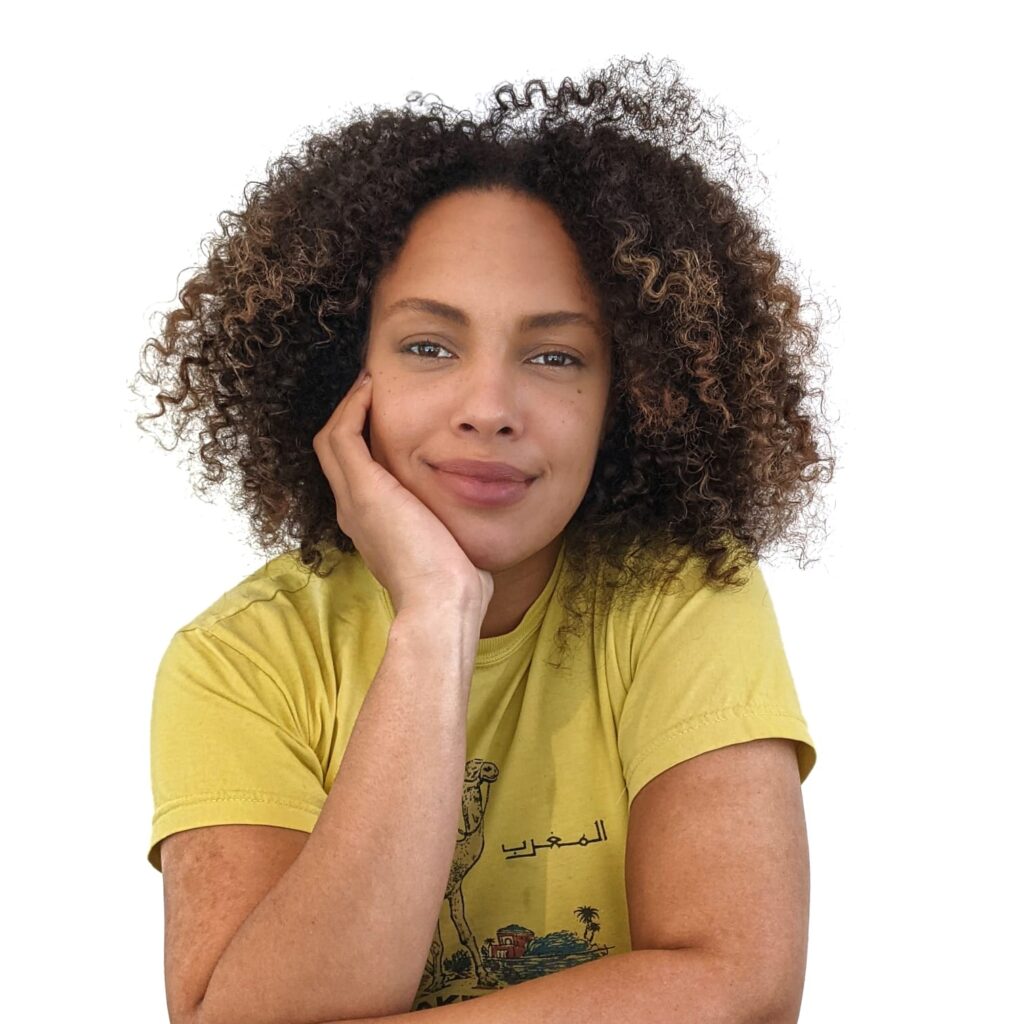
Georgia Yexley
Founder, Loud Mobility
Georgia is a passionate, vocal and experienced inclusive active travel advocate, and an influential voice in the micromobility industry. In her work across three leading micromobility operators (boasting two ‘unicorns’, three acquisitions and one IPO), she has worked with hundreds of cities across the globe on delivering their active and sustainable transport aims. Georgia recently stepped down from her role leading global giant TIER Mobility’s e-scooter and e-bike operations across the UK and Ireland, launching her consultancy, Loud Mobility, and shifting her focus to driving forward purpose-led and benefit-focused transport strategies, across the private, public and charitable sectors. In Georgia’s words, “It’s encouraging to see the Bicycle Association launch and invest in a long term project, seeking to improve diversity in the cycling industry. I’m hopeful that this work will be rooted in data-driven evidence, paired with accountability and proactive action. By starting with an honest review of the current state of diversity, equity and inclusion, the industry at large can best identify, and then deconstruct the barriers currently in place. The re-learning and re-building can then begin. There is no better way to do this than in widespread collaboration to achieve this mission. It is not a moral endeavour alone; importantly, the industry stands to benefit financially from diversifying its workforce and consumers. The nation will also benefit from the green jobs, health and wellbeing benefits and economic growth that can come through this work. I’m proud to be a friendly challenger on the steering committee. I’m keen to represent the part of the industry working on delivering active travel as public transport, from a professional standpoint. As well as women of colour and neurodiverse people in the industry, from a personal standpoint. To represent well I’ll need to keep hearing from said groups, so please do reach out.”
Read Georgia’s articles on the culture of discrimination and exclusion in Britain’s cycling industry, and how micromobility can deliver public good.
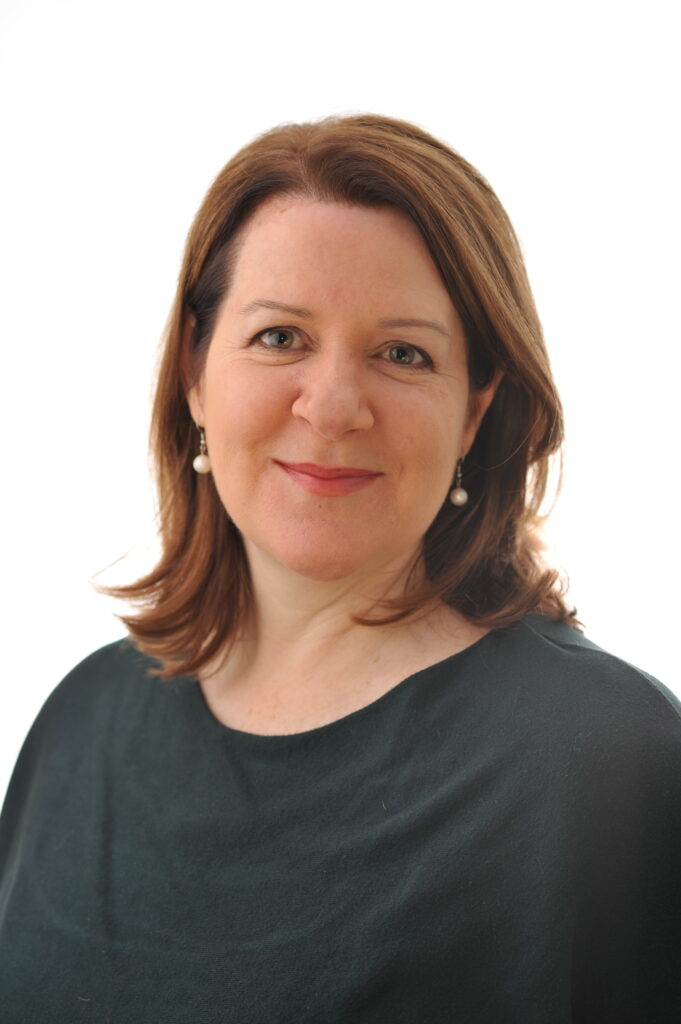
Irene McAleese
Co-founder, See.Sense
Irene is Co-founder and Chief Strategy Officer at See.Sense, a micro-mobility technology and data SME on a mission to help cities transform for more cycling and sustainable travel. Irene leads strategy, partnerships, and the company’s Data Insights Team, helping to grow See.Sense into one of the UK’s leading scaleups. See.Sense is a Winner of NI Women in Business Award for Best Small Business, and a Finalist in the Bike Biz Woman of Year Award 2021. Irene is also an Ambassador to the Women in Cycling network, and is listed in Cycling UK’s 100 Women in Cycling, and has been featured as a British Cycling ‘Trailblazer’. In Irene’s words, “The cycling industry is very male-dominated. In a lot of the discussions I have, I bring a different perspective, style and approach. I really think the diverse thinking and skillset makes our business more successful.”
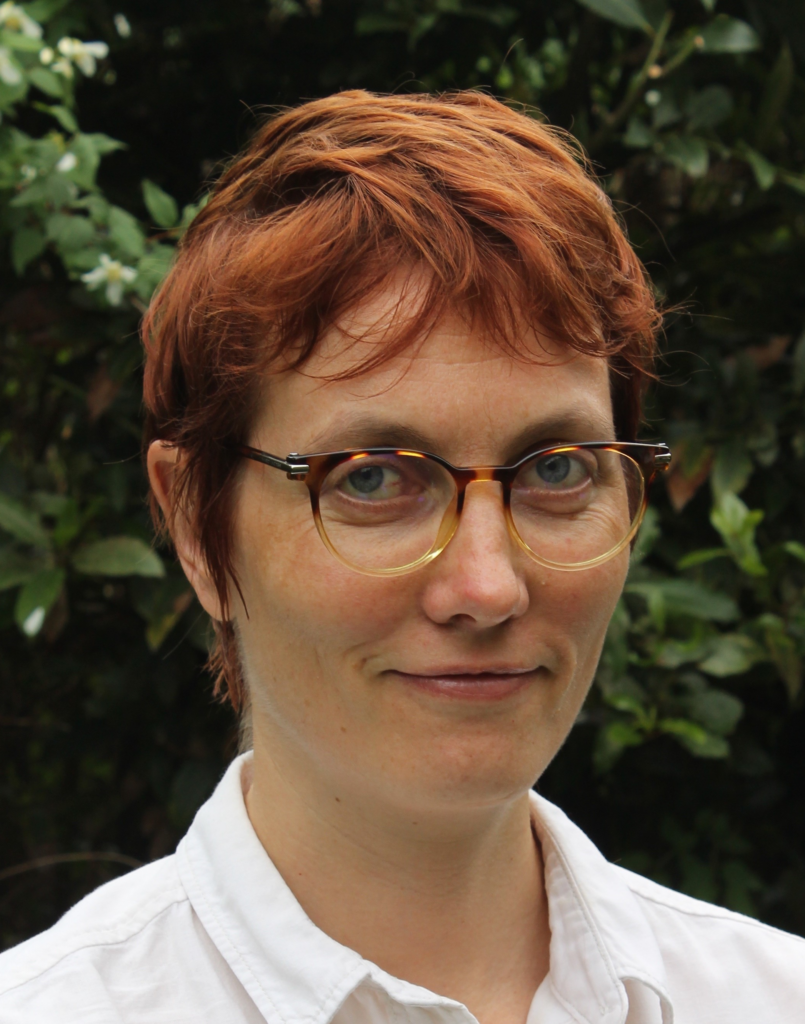
Jessica Matthew
Co-Director in Local Transport, Department for Transport
The directorate’s remit is wide, covering a number of PM priorities including: the Levelling Up Fund, buses, active travel (cycling), accessibility of the transport network for people with disabilities, major local infrastructure and highways maintenance.
In 2020, Jessica was temporary Director of Strategy and Private Office, covering a maternity leave. She successfully led DfT’s Spending Review negotiations, jointly with the Finance Director, obtaining a very good settlement. Prior to that she was Deputy Director for Rail Environment and Digital at the Department for Transport, focusing on decarbonising the rail sector and transforming rail signaling. She has held numerous previous positions in the Department for Transport and what is now called the Department for Communities and Local Government. These have included responsibility for Road Safety, where she was instrumental in introducing an entirely new regime to clamp down on people driving under the influence of drugs and succeeded in creating harsher penalties for those using their mobile phones whilst driving.
She also held previous posts on Sustainable Travel, where she created the multi-million pound Local Sustainable Transport Fund, enabling local authorities to seek investment for cycling and walking schemes; and held a post to boost the Economic Growth for Cities. She was also once private secretary to Chris Mullin MP, and therefore appears in his published diaries, A View from the Foothills.
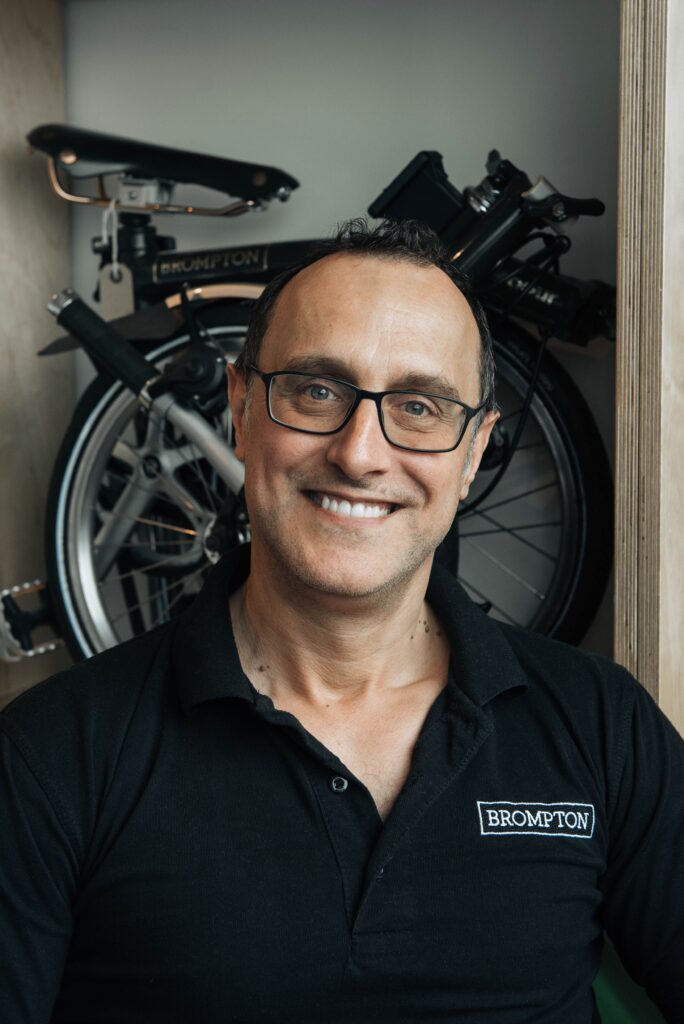
Julian Scriven
Managing Director, Brompton Bike Hire
Julian is the Managing Director of Brompton Bike Hire as well as overseeing Public Policy for Brompton Bicycles. Julian is a passionate advocate for diversity and inclusivity in cycling and sees bike share and bike hire being key catalysts to achieve this. In addition to his formal roles at Brompton, Julian also oversees a number of social projects, including Brompton’s Wheels for Heroes, where key workers and low income households can get a free loan of a Brompton to give cycling a go. Julian is not a cyclist, but he frequently travels by bike, a habit he got into after 10 years living in Amsterdam.
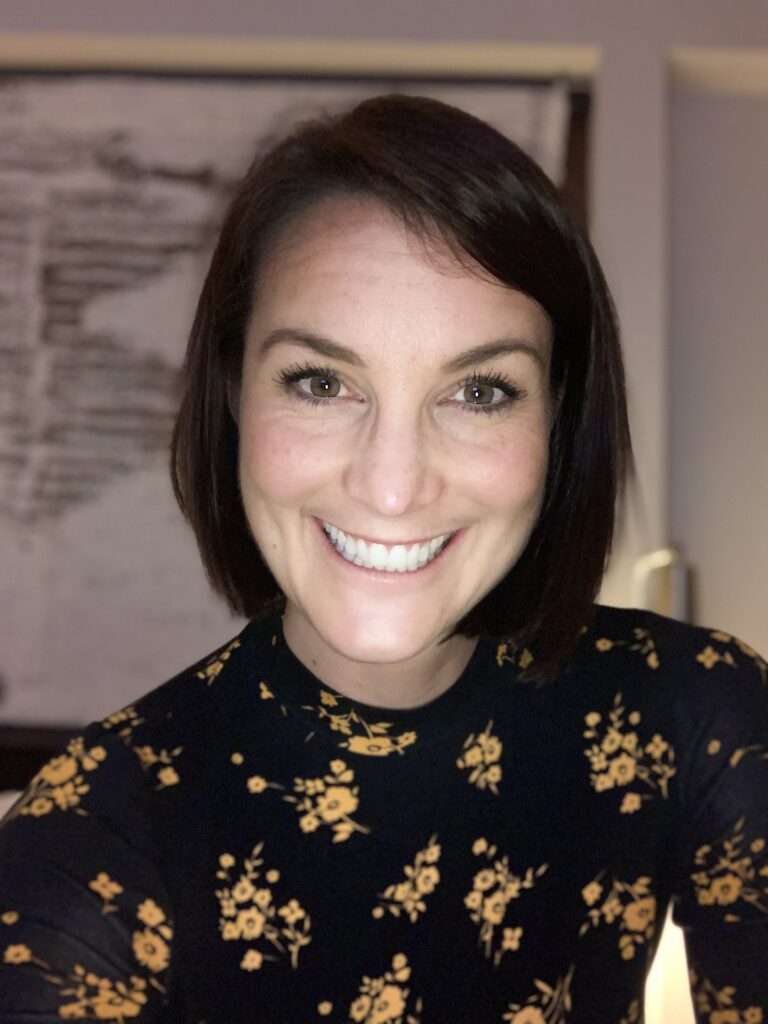
Kirsty Woodcock
Head of Marketing, Specialized
Kirsty Woodcock is Head of Marketing for Specialized in the UK. The iconic Specialized brand is a common sight across the Pro Peloton, XC and Downhill athletes across the world. Innovation sits at the heart of what they do, and Kirsty hopes to bring this value to the Diversity Advisory Board. Prior to Specialized, Kirsty looked after the marketing for WiggleCRCs Own Brands, gaining experience across Ecommerce and Retail. She had an unusual start to her career with The National Lottery, working with national sporting organisations on Lottery Funded initiatives, and occasionally enjoying the company of new millionaires. Outside of work, cycling is a true passion and Kirsty is often found on her road bike, or building skills out on her gravel bike. She’s an active member of her local cycling club, and has recently taken on a more formal role as joint Women’s Captain to encourage more women into the club, and into cycling.
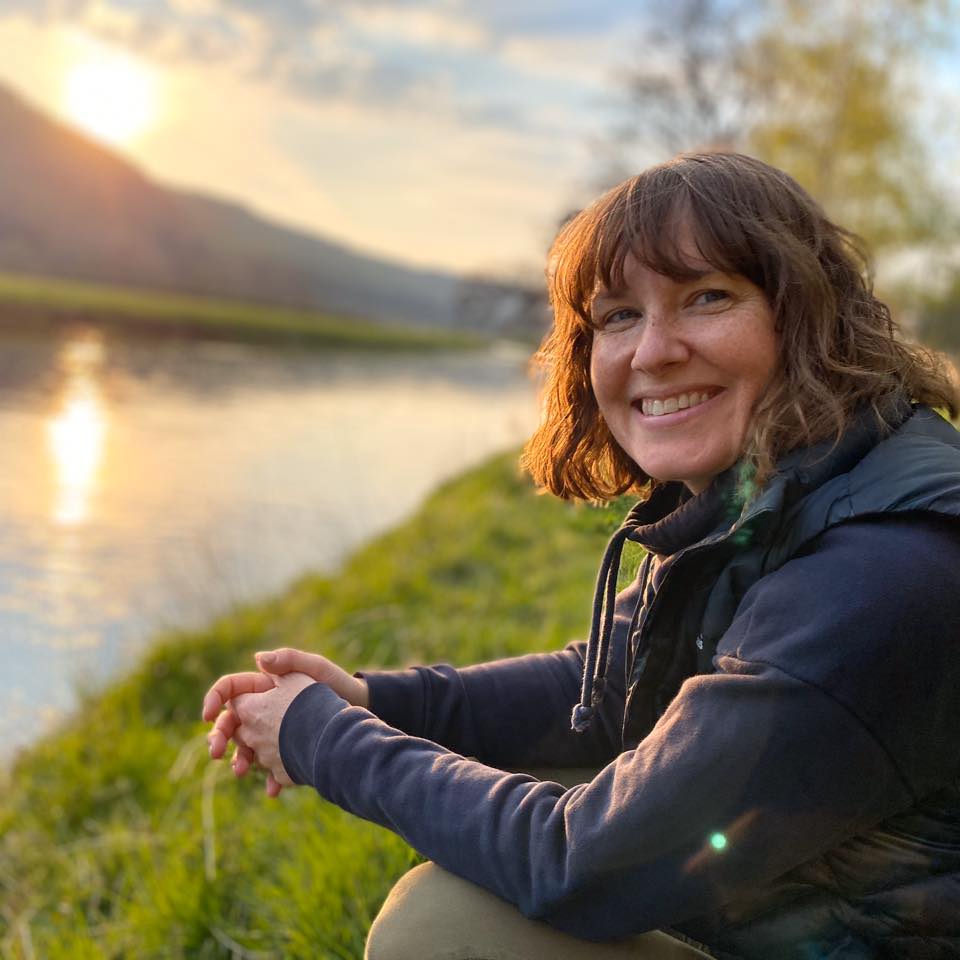
Nadine Thompson
Commercial Director, Pentland
Nadine is Commercial Director for Outdoor & Cycle and has been with Pentland for ten years. She has been responsible for delivering significant growth by developing the commercial strategy needed to win with priority customers, channels and markets in the region. The outdoor and cycle industry often lacks gender and ethnic representation so during this time she has worked on her ambition to ensure varied points of view are welcomed and everyone feels included.
Before joining Pentland, Nadine spent 13 years at Procter & Gamble where she started on Iam’s Pet Food before moving over to Health & Beauty. She has worked on some of the world’s biggest brands such as Gillette, Pampers and Oral B; developing commercial strategy to win with customers from small independents, Wholesalers, National and Multinational Accounts. Nadine has a passion for learning and coaching, this led her to complete a part-time MSc in Psychology in 2018. During her career she has led the P&G commercial graduate scheme and is currently responsible for the Pentland Commercial Academy which aims to continuously develop the commercial capability of all Pentland people.
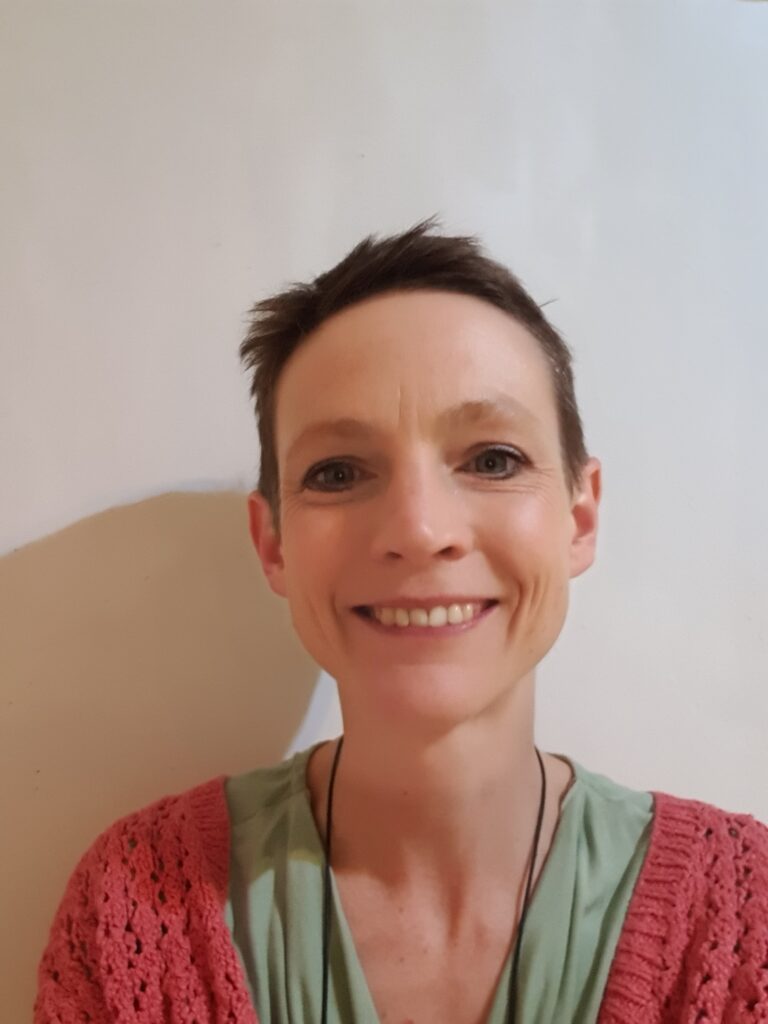
Professor Rachel Aldred
Professor of Transport and Director of Westminster University’s Active Travel Academy
Rachel has more than fifty peer-reviewed publications on active travel and won in 2016 the ESRC Prize for Outstanding Impact on Public Policy. She leads projects funded by organisations including the National Institute for Health and Care Research, Department for Transport, and Transport for London. Rachel supervises seven PhD students and her teaching includes quantitative methods in transport studies.

Tim Goodall
Managing Director, Islabikes
Tim Goodall, the managing director of Islabikes, has been a central part of the company since 2006. With a couple of brief forays into outdoor apparel and phone networks, his passion for cycling runs deep. Whether that’s using a bicycle for his daily commute, or weekend adventures; it’s a passion he knows must be available for all. Tim was instrumental in helping to establish Islabikes’ diversity policy, which played a central part in diversifying the team and culture at the company. In Tim’s words, “Having seen first-hand the benefits to Islabikes, my wish is to see an industry that reflects the diversity of society, for the benefit of all.”
References
1 Irvine et al (2022). Women and the UK Economy. House of Commons Library Research Briefing [Accessed 03/01/23]
2 BA census (2021)
3 Hortelano A O et al (2021) Women in Transport Research and Innovation: A European Perspective. Sustainability 2021, 13, 6796. https://doi.org/10.3390/su13126796 [Accessed 03/01/23]
4 FPA Analytics (2020) Women as levers of change [Accessed 03/01/23]
5 World Economic Forum (2022) Global Gender Gap Report 2022 [Accessed 13/02/23]
6 Sustrans (2022) Walking and Cycling Index 2021 [Accessed 27/01/23]
7 Department for Transport (2021) Walking and Cycling Statistics 2020 [Accessed 03/01/23]
8 Sustrans (2022) Walking and Cycling Index 2021 [Accessed 27/01/23]
9 BA census (2021)
10 BA census (2021)
11 Transport for London (2021) Cycling potential in London’s diverse communities [Accessed 26/01/23]
12 Sustrans (2018) Reducing the gender gap [Accessed 03/01/23]
13 Standish, J (2019) All in: Inclusion & Diversity drive shopper habits[Accessed 16/02/20]
14 Catalyst (2020) Why diversity and inclusion matter [Accessed 24/06/20]
15 Foreign Policy. (2020) Women as Levers of Change
16 McKinsey & Company (2020) Diversity wins: How Inclusion matters [Accessed 13/02/23]
17 Catalyst (2020) Why diversity and inclusion matter [Accessed 24/06/20]
18 Great Place to Work (2020) Racially Diverse Workplaces have largest revenue growth [Accessed 26/01/23]
19 Workplace Gender Equality Agency (2018) Workplace gender equality: the business case. [Accessed 26/01/23]
project supporters
The following organisations support our commitment to creating a diverse, equitable, inclusive industry, and have made their own strategic commitments to improving diversity, equity and inclusion in their workplace and across the cycling sector. We look forward to working alongside them to achieve real change.

